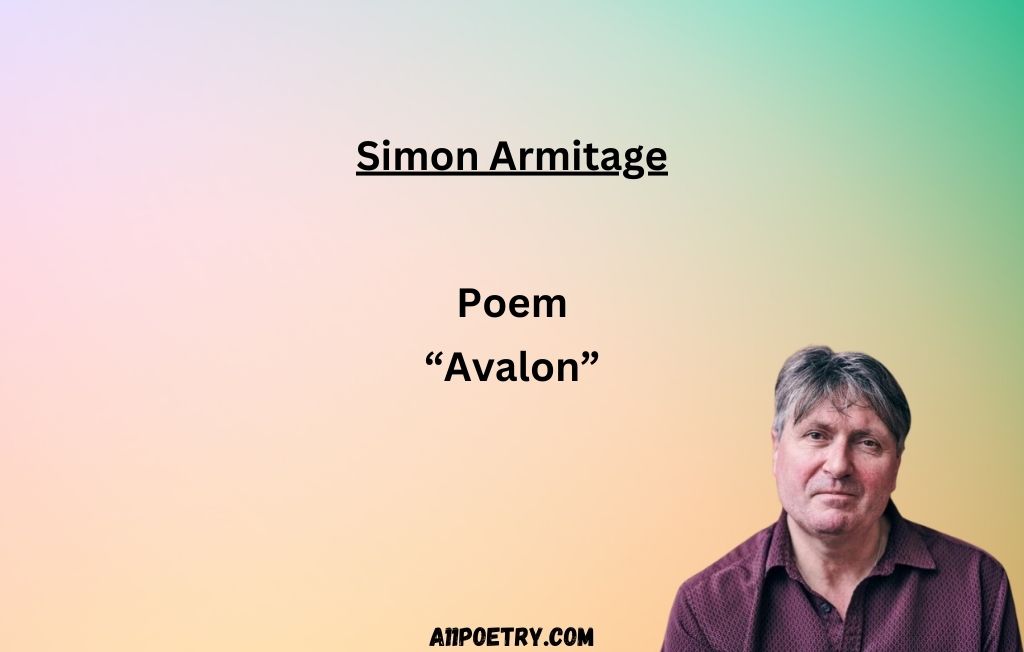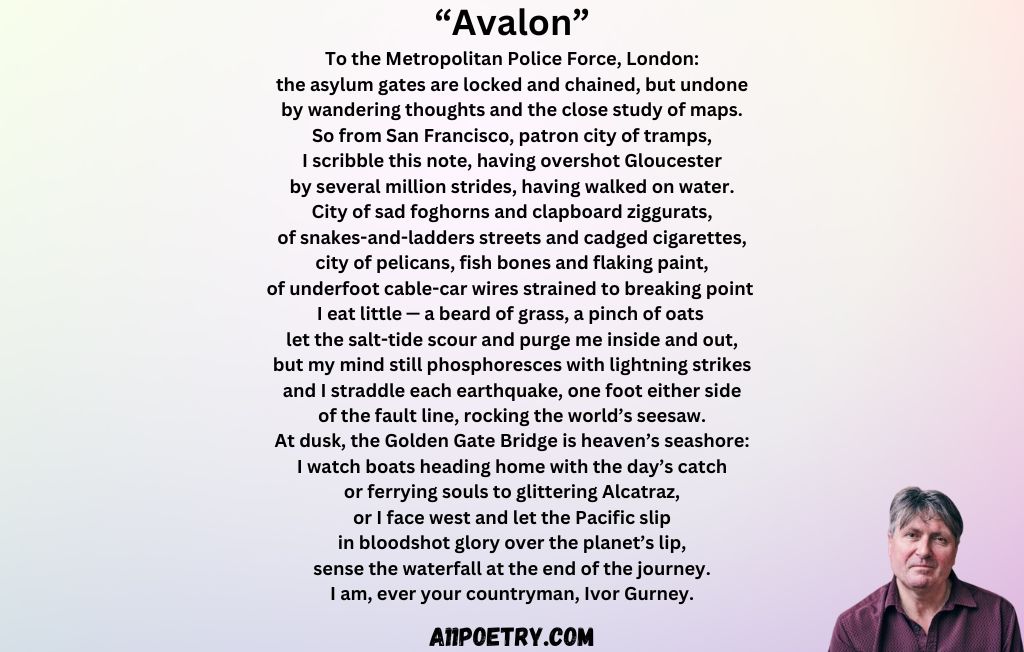
Simon Armitage’s poem “Avalon” is a concise yet powerful reflection on love, longing, and the idea of unattainable perfection. Armitage uses the mythical island of Avalon as a metaphor for an idealized love—one that exists only in the imagination and remains forever out of reach. Avalon, often depicted in Arthurian legend as a paradise, symbolizes a place of beauty and tranquility, but in the context of the poem, it reflects the speaker’s yearning for a love that cannot be fully realized.
The poem’s brevity enhances its impact, allowing Armitage to convey complex emotions through simple, clear language. The speaker expresses a deep sense of desire, yet there is an underlying awareness that this love may always remain a distant dream. Through “Avalon”, Armitage explores the universal theme of longing for something perfect, while acknowledging the inevitability of disappointment. In just a few short lines, the poem captures the bittersweet nature of love and desire.













